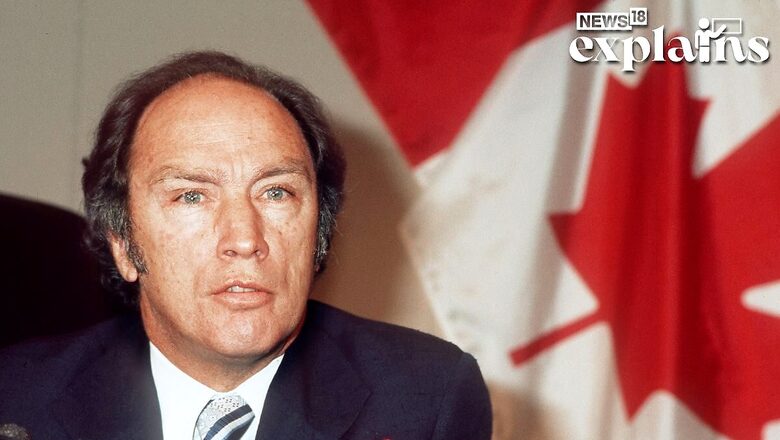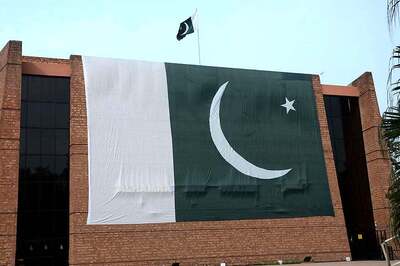
views
The Canadian government’s refusal to check the anti-India activities of Khalistani groups has led to an unprecedented diplomatic crisis in India-Canada relations. The crisis unfolded after Justin Trudeau’s Liberal Party-led government, which enjoys considerable support from the Sikh diaspora, ignored India’s call for action into attacks against Hindu temples and Indian mission in Canada.
However, this isn’t the first time that the Canadian government has refused to restrain Khalistani activities.
Justin Trudeau is following merely following his father’s footsteps, who refused to extradite the accused behind the horrific bombing 1985 Kanishka bombings.
All About Kanishka Bombing
An Air India Flight 182, flying from Montreal to London with its final destination to Delhi, exploded on June 23, 1985, after Khalistani terrorists fitted it with a bomb. The wide-bodied jumbo jet, christened Emperor Kanishka, was fitted with a bomb inside a suitcase.
The bomb exploded in Irish airspace at an altitude of 31,000 feet, killing all 329 people on board most of whom were Indian-origin Canadians. There were no warning or emergency calls issued by Air India Flight 182 as it exploded within 45 minutes of taking off from Canada’s Montreal.
It was the worst air disaster associated with Canada and one of the first terror attacks by the Khalistani groups in Canada.
Khalistani Involvement
As per the reports published during that time, the bomb was located in a suitcase in the plane. A person named Manjit Singh got a suitcase transferred to Air India Flight 182, but he didn’t board the flight when it took off.
After the bombing, the Khalistanis claimed responsibility for the attack. Talwinder Singh Parmar was later named as the mastermind of the 1985 Air India bombing.
“In New York, in the hours following the disaster, three separate groups called up newspaper offices to ‘take credit’ for the crash. The three were the so-called Dashmesh Regiment, the All-India Sikh Students Federation and the Kashmir Liberation Army,” according to a report from India Today.
Investigation Blamed the Canadian Government
The ‘Emperor Kanishka’ bombing was the worst act of terror in Canada and the worst air disaster. Then Foreign Minister SM Krishna, while informing the parliament, said the Canadian Government agencies were in possession of significant pieces of information that taken together would have led a competent analyst to conclude that Flight 182 was at high risk of being bombed by Sikh terrorists.
The government also said that the Canadian Government agencies failed to appreciate the nature and seriousness of the threat of Sikh extremism. Moreover, the Canadian Security Intelligence Service (CSIS) surveillance was ineffective.
The Canadian intelligence agency had the information that could have prevented the Kanishka bombing, a report in The Washington Post revealed. However, the Canadian Security Intelligence Service pulled back an agent who had infiltrated the militant group days before the bombing.
Another investigation report, published in 2010, also pointed out that there was a dispute between the Royal Canadian Mounted Police (RCMP) and spy agency CSIS, which weakened the country’s security mechanism. It also blamed the Canadian government for its failure to prevent the tragedy.
“There was a lack of cooperation and communication within the RCMP and between RCMP, Transport Canada and airlines in relation to airport security,” the Foreign Minister added.
Trudeau’s father Refused to Cooperate
The mastermind, Talwinder Singh Parmar, had come to Canada in 1984 after he was released from jail for killing 2 Punjab Police officers. After the bombing, the Canadian government refused to cooperate as Justin’s father, Pierre Trudeau, refused to extradite him to India on the specious plea that India, though a member of the Commonwealth, did not recognise the sovereignty of the Queen who was Canada’s sovereign.
Parmar was the founder, leader, and Jathedar of Babbar Khalsa International (BKI), better known as Babbar Khalsa, a Sikh militant group involved in the Khalistan movement.




















Comments
0 comment